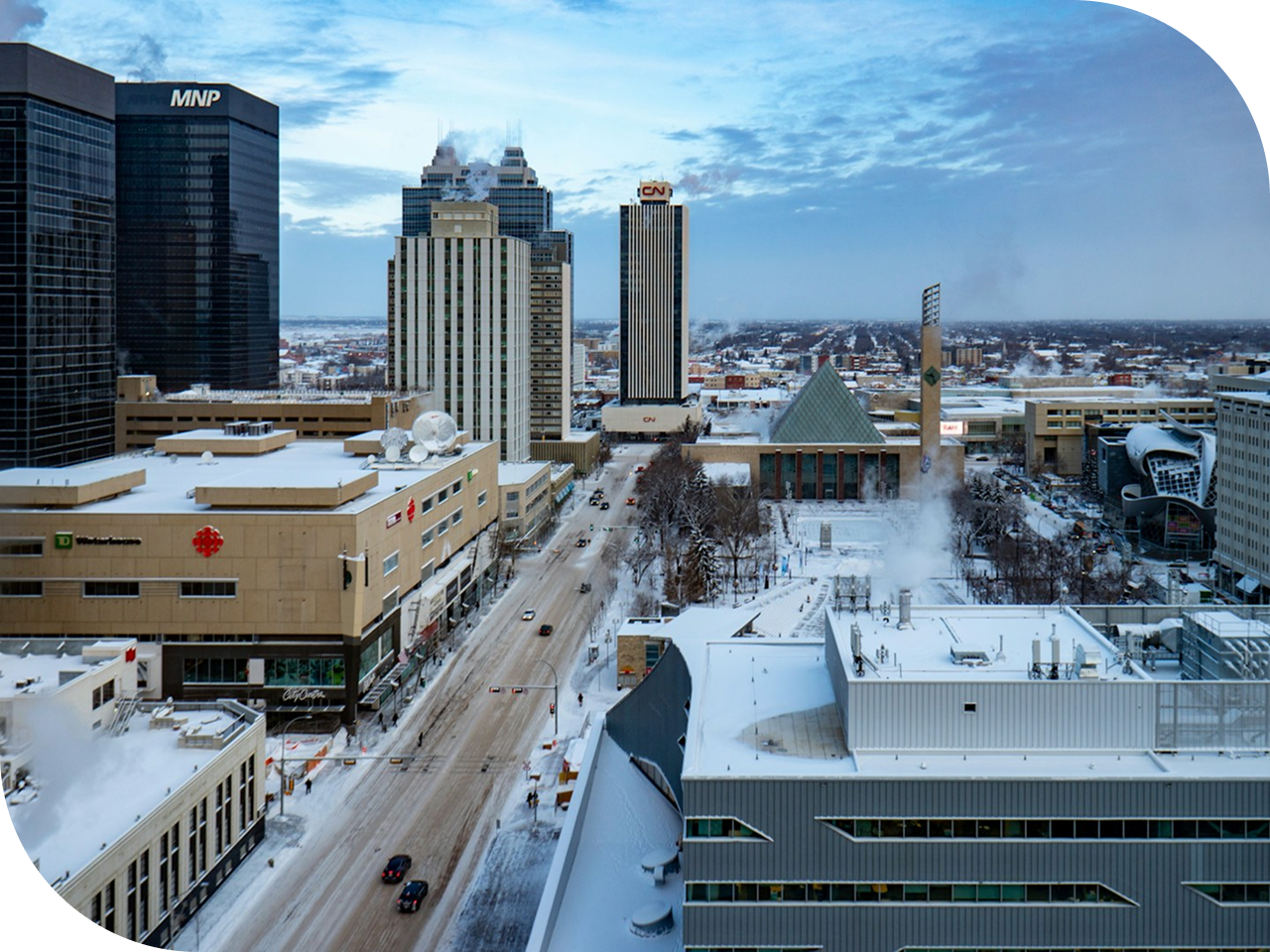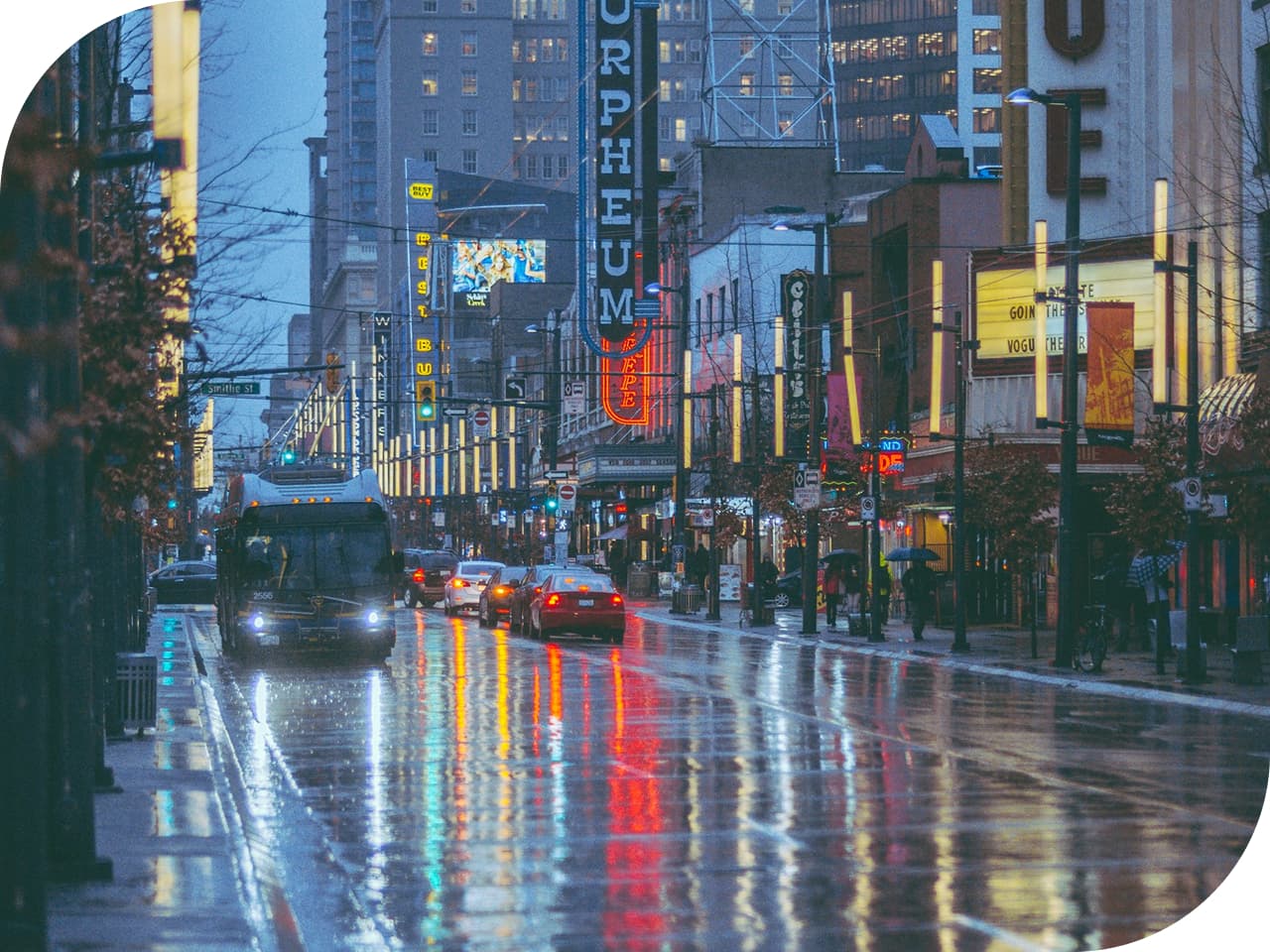Retail Store Insurance
General liability insurance covers your retail business if someone sues you due to a bodily injury or property damage at your storefront — regardless of whether you’re to blame. Get a quote and buy online in under five minutes.
4.7 rating


APOLLO and Gallagher Partner to Protect Your Business
We've partnered with Gallagher, one of Canada's leading insurance brokers, to provide insurance designed for businesses and business professionals. Get professional liability, general liability, and/or contents insurance designed specifically for your profession.
Get insurance in three easy steps


Choose the payment plan that suits you best.

Get your policy documents in an email instantly
There are three kinds of insurance a retail store needs

Commercial Property Insurance
Commercial property insurance for retail properties protects your retail locations from tragedies such as fire, floods, or bad weather. If such a scenario damages your store, a commercial property policy can pay for your repair costs.

General Liability Insurance
General liability insurance for retail properties covers the legal fees and damage awards related to bodily injuries and property damage occurring at your retail premises. In some instances, it can protect your business from slander and libel lawsuits as well.

Contents Insurance
Contents insurance for retail properties covers the assets and belongings inside your storefront. Whether it's computers, exercise equipment, inventory, or latte machines, you can rest assured if something leaves your property damaged or stolen, your contents insurance policy can repair or replace these items.
Running a Store Is Tough. Insurance Makes It Easier.

Running a Retail Store Means Being Ready for Anything.
You handle a lot more than just sales. From receiving shipments and managing inventory to helping customers and handling day-to-day operations, retail ownership is fast-paced and unpredictable.
Even on a good day, things can go wrong. A burst pipe could damage your products. A customer might slip near the entrance. Someone could shoplift high-value items when you're not looking. These aren’t rare scenarios — they’re the kinds of risks every store owner faces.
Retail store insurance helps protect your business so that unexpected problems don't turn into costly setbacks.

You’ve Got a Lot on the Line. Insurance Helps You Protect It.
As a store owner, you’re responsible for everything inside your walls. That includes your products, your space, your staff, and every customer who walks in. Having the right insurance policy in place means you can keep moving forward even when things go sideways.
Whether it’s a liability claim, a break-in, or a sudden closure, coverage gives you the peace of mind to focus on what really matters — keeping your business running and your customers happy.
FAQs About Retail Store Insurance
What is retail store insurance?
Retail store insurance is a type of business insurance that protects shop owners from common risks like property damage, theft, customer injuries, and business interruptions. It combines several coverages into one policy to help safeguard both your physical store and your operations.
Who needs retail store insurance?
If you own or operate a brick-and-mortar retail business such as a clothing boutique, electronics store, bookstore, or convenience shop, you likely need insurance. It’s essential for protecting your inventory, your customers, and your bottom line.
What does retail store insurance typically cover?
A standard retail insurance policy includes:
Commercial General Liability: Covers third-party injuries or property damage (like if a customer slips in your store).
Commercial Property Insurance: Protects your store location, furniture, equipment, and inventory.
Business Interruption Coverage: Helps cover lost income if you have to temporarily close due to an insured event.
Crime or Theft Coverage: Protects against losses from burglary, shoplifting, or employee theft.
Optional add-ons may include cyber insurance, equipment breakdown, and more depending on your business needs.
How much does retail store insurance cost?
The cost depends on several factors, including the size and location of your store, the value of your inventory, your claims history, and the type of products you sell. On average, retail insurance can range from $500 to $2,500 annually, though smaller shops may pay less.
Is retail store insurance required by law?
Insurance isn’t legally required to operate a retail business in most cases, but it may be required by your landlord or lease agreement. More importantly, it helps protect your business from financial loss due to accidents, lawsuits, or damage.
Can I get coverage if I sell online too?
Yes. If you run a physical store and also sell products online, you can be covered under the same retail policy. Just make sure your insurer knows how your business operates so your policy reflects all the ways you sell.
What happens if I need to file a claim?
If something happens, like a fire, theft, or customer injury, you’ll contact your insurance provider to file a claim. APOLLO makes this process easy with a digital platform and responsive support to guide you through each step.
How Much Does Retail Store Insurance Cost in Canada?
Less than a major claim. And it's a must-have investment in your business.
Most retail store owners can expect to pay between $500 to $2,500 per year for a retail insurance policy, depending on your store type, inventory value, location, and coverage needs.
Like your inventory strategy, your insurance should be tailored to fit your business.
Here's what impacts the cost of your policy:
Location of Your Store
Busy downtown core or quiet suburban plaza?
High-traffic or high-theft areas may raise your premium, while less risky neighbourhoods could mean lower costs.
Type of Merchandise Sold
Do you sell clothing, electronics, food, or high-value goods?
Items that are more valuable or prone to theft may increase your insurance costs.
Store Size and Revenue
Small boutique or large retail floor plan?
Bigger operations or higher revenue typically mean more exposure — and slightly higher premiums.
Property and Inventory Value
How much stock do you keep on-site?
The more inventory or equipment you need to protect, the more coverage you’ll need to insure it.
Coverage Limits
Most landlords require proof of $2M in liability insurance.
You can increase or reduce your coverage depending on your risk level and what makes sense for your store.
Where Your Retail Store Is Located Matters
Retail businesses in Canada face unique risks tied to local weather, climate, and environment. From icy sidewalks to flooding and extreme heat, unexpected events can damage your storefront, inventory, or reputation, especially if you don’t have the right coverage.
Here are a few real-world examples and how insurance can protect your business:

Slip-and-Fall Liability in Snowy Edmonton
Edmonton winters are no joke. Heavy snowfall, freeze-thaw cycles, and icy sidewalks can make storefront entrances hazardous. If a customer slips outside your shop and gets injured, you could be held responsible, even if the city hasn’t cleared the sidewalk yet.
Example: A customer slips on ice near your front entrance while walking in. They break their ankle and file a claim alleging unsafe conditions.
Insurance Solution: Commercial general liability insurance helps cover medical costs and legal fees if someone is injured on or near your premises.

Water Damage from Heavy Rain in Vancouver
Vancouver’s consistent rainfall can seep into your storefront or storage area, especially in older or ground-level buildings. Without proper protection, inventory loss due to water damage can add up quickly.
Example: A clogged drain causes water to leak into your backroom during a rainstorm, damaging hundreds of dollars in packaged goods and display materials.
Insurance Solution: Commercial property insurance covers the cost to replace damaged inventory, fixtures, or equipment due to weather-related flooding or leaks.

Heatwaves and Power Outages in Toronto
Ontario summers can be scorching, and power grids don’t always keep up. For stores that rely on refrigeration or point-of-sale systems, even a brief outage can be disruptive.
Example: A heatwave causes a power outage in your Toronto neighbourhood. Your freezers shut down for several hours, spoiling thousands in perishable stock.
Insurance Solution: Business interruption insurance can help recover lost income and cover inventory spoilage due to covered power-related interruptions.
What Commercial Landlords Expect from Retail Tenants

Certificate of Insurance (COI)
This document proves your store has active insurance. Most landlords require a COI before you can sign your lease or move in. With APOLLO, you can download your certificate instantly after buying your policy online.

Additional Insured
Landlords will often ask to be added to your policy as an “additional insured.” This gives them some legal protection if something happens on the property and they’re named in a claim.

Minimum Liability Requirements
Most commercial leases require at least $2 million in general liability coverage, though some may ask for more. APOLLO policies scale to meet whatever your landlord requires.

PRO TIP: Keep a digital copy of your COI on hand
Upload it to your lease documents or keep it in your email, so it’s ready when your landlord or property manager requests it.
Liability Quiz
Am I liable if a customer slips on a wet floor in my store?
Yes. Even if it was just cleaned, you're responsible for maintaining a safe environment. General liability insurance can help cover medical costs and legal fees.
Am I liable if a delivery person trips over stock left near the back door?
Yes. If someone is injured while on your property, your business could be held responsible, even if they're not a customer.
Am I liable if a shelf falls and damages a customer’s belongings?
Yes. If store fixtures or displays cause injury or damage, you could face a claim. Liability coverage helps manage these unexpected incidents.
Am I covered if my store is temporarily closed due to damage and I lose income?
Not automatically. You’ll need business interruption coverage as part of your policy to help recover lost revenue while you repair and reopen.
The Cost of Not Having Retail Store Insurance
Scenario | Out-of-Pocket Cost (Without Insurance) | Covered By Insurance? |
A customer slips on a wet floor and sues for injuries. | $5,000–$100,000+ (medical bills, legal fees, settlement) | ✔ General Liability |
A break-in results in thousands of dollars in stolen inventory. | $3,000–$20,000+ | ✔ Commercial Property |
A burst pipe damages your backroom and forces you to close for repairs. | $5,000–$25,000+ (repairs and lost income) | ✔ Property + Business Interruption |
A shelf collapses and damages a customer’s personal belongings. | $1,000–$10,000 | ✔ General Liability |
A power outage spoils refrigerated goods. | $500–$5,000+ | ✔ Business Interruption or Property Add-on |
Top 5 Mistakes Retail Store Owners Make (And How to Avoid Them)
1. Assuming your landlord’s insurance covers you
Landlord policies typically only cover the building itself, not your inventory, equipment, or liability. You’re responsible for protecting your business from customer injuries, property damage, or loss.
2. Waiting until something goes wrong to get insured
Delaying coverage can leave you exposed. If a break-in, accident, or leak happens before you’re insured, you’ll have to cover those costs out of pocket, and it adds up fast.
3. Underinsuring your inventory
Retail businesses rely on stock. If your coverage limit is too low, you might not be able to replace everything after theft, fire, or water damage. Review your policy to make sure it reflects what you actually carry.
4. Not meeting lease requirements for liability coverage
Most commercial leases require proof of at least $2 million in general liability, and some landlords won’t hand over the keys until you show a Certificate of Insurance. Double-check before you sign.
5. Forgetting to add your landlord as an Additional Insured
Many landlords require you to add them to your policy to reduce their legal exposure. It’s easy to do with APOLLO and helps ensure compliance with your lease terms.